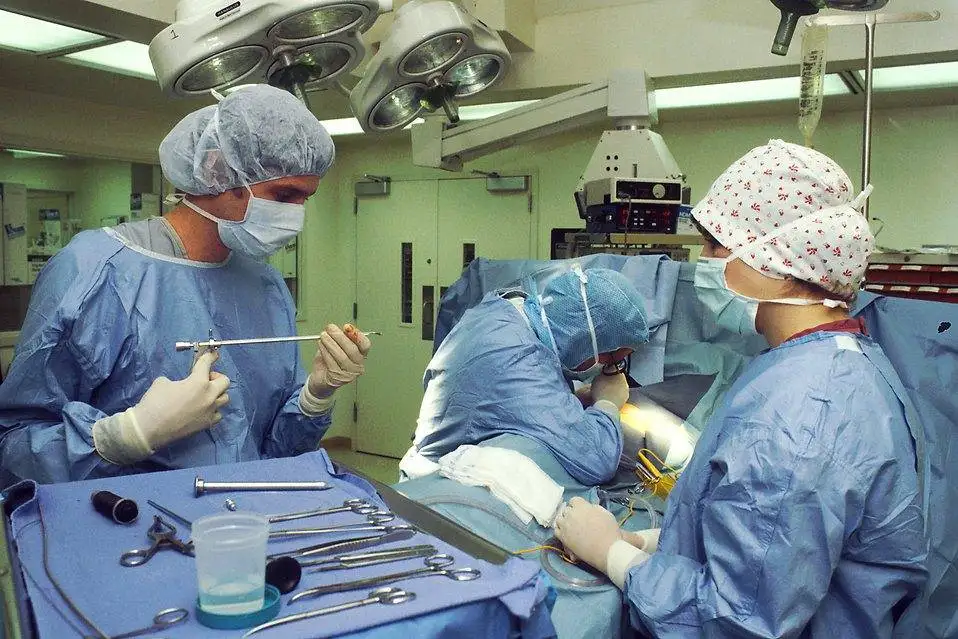Table of Contents
Determining whether a sick child needs to go to the emergency room, an urgent care center, or the pediatrician’s office can be tricky.
To start, only true emergencies should be attended to in emergency rooms. A child may receive quicker and more effective care at an urgent care facility or with an after-hours pediatrician unless they are experiencing severe symptoms, like difficulty breathing.
Any crowded environment carries some risk of exposure to illness. So, choosing the appropriate location for an illness or injury helps ensure proper care and save time.
If your child has a serious or life-threatening condition or if a newborn has a fever over 100.4 degrees, you must immediately take them to the emergency room. An urgent care facility or pediatrician’s office is appropriate for less serious cases, such as fever and cough.

How After-Hours Pediatrics Help Emergency Cases
After-hours pediatric clinics focus on the clients in kid-friendly settings run by pediatricians, as opposed to the environment in the ER.
The clinic staff has specialized training in pediatric medicine. As a result, they can quickly diagnose and treat common and acute childhood conditions, such as fevers, earaches, and broken bones.
Also, during emergency cases, the pediatrician and medical staff are capable of stabilizing the patient’s condition. They can give first-aid treatments for wounds and bleeding, as well as apply dressings.
First-aid treatment helps stabilize the patient’s condition. After this, the clinic staff can facilitate your child’s transfer to the emergency room for further treatment with the appropriate equipment.
Why Should I Visit After-Hours Pediatric Clinics Instead?
After-hours pediatric clinics offer advantages over other healthcare facilities.
- Many illnesses and wounds are treatable quickly and successfully.
- The procedures done at after-hours pediatric clinics are frequently less expensive than those at emergency rooms.
- Your child will receive the care they require when they require it, thanks to the convenience and extended hours of after-hours pediatric clinics.
- The wait time at urgent care is typically shorter than at the emergency room. Additionally, pediatric-focused facilities typically have shorter wait times for urgent care than full-service facilities.
How It Benefits You As A Parent
After-hours pediatricians can be your primary healthcare provider. They’re just the same as pediatricians, only with different working hours. If you choose an after-hours pediatrician, you don’t have to take a leave from work when your child needs to go to the pediatrician.
You also have a pediatrician you can run into just in case your child gets sick or injured during unexpected times of the day.
How It Benefits Your Child
Your child may have a lot of school activities, leaving no time for pediatric checkups. You can’t skip such appointments for your kid, though. With an after-hours pediatrician, your kid doesn’t have to be absent for a day—only to have a routine checkup with the doctor.
Aside from that, if your child doesn’t feel well, you can walk in or have a scheduled appointment with the after-hours pediatrician late at night or on weekdays. You may not need to go to the emergency rooms, which most kids dread, only to line up in a long queue.
Bright hues and stickers that may be present in the kid-friendly after-hours pediatric clinic can help sick children feel a little better, as opposed to dreary ER waiting rooms.
When to Go to the Emergency Room
For children, many illnesses should be treated in the emergency room. Take them to a pediatric emergency room if at all possible! Pediatric emergency rooms usually have emergency pediatric doctors on staff, kid-sized medical equipment, and a more tranquil, family-friendly environment.
The following ailments should be treated in an emergency room:
Complex Wounds
A large or complicated wound that won’t stop bleeding must be treated in the emergency room to stop excessive blood loss. Additionally, the doctor can determine whether stitches are required.
Breathing Trouble
Always bring a child who is having trouble breathing to the emergency room. A severe asthma attack, excruciating chest pain, passing out or fainting, coughing up blood, and other possibilities could all contribute to the breathing issue.
Suicidal Actions And Thoughts
The emergency room is the best option if you believe your child is unsafe and wants to hurt himself or others.
Accidental Poison Ingestion
Children should be seen in the emergency room if they accidentally come into contact with or ingest a poisonous product, such as laundry or cleaning supplies, insecticides, disinfectants, acids, or similar liquids.
Head Injuries
A child who has suffered a head injury, loss of consciousness, seizures, or suddenly develops neurological problems such as altered mental status, fever with a headache and stiff neck, or sudden changes in their speech, vision, walking, or movement should be taken to the ER.
Newborn Fevers
Go to the emergency room if your infant is under two months old and has a fever of more than 100.4 degrees.
Intense Dehydration
Seizures and brain damage are serious issues that severe dehydration can bring about. Some symptoms are extreme thirst, drowsiness, lethargy, feeling cold, and a rapid heartbeat.
Major Burns
Serious burns caused by fire, hot liquid, chemicals, or electricity require emergency care, whereas minor burns can be treated at an urgent-care facility or pediatrician’s office. The outer layer of the skin may be red or pink, painfully swollen, and blistered in severe burns.
Broken Bones And Fractures
If there is a visible bump, deformity, open fracture, or severe bone fracture, or if you suspect your child has a broken bone, a medical professional, such as an orthopedic surgeon, will offer expedited care.

Severe Allergic Reactions
A kid who is experiencing a severe allergic reaction, coupled with nausea, vomiting, breathing problems, and altered responsiveness
When to Go to an Urgent Care Facility
Acute and chronic illnesses and injuries can be treated outside of the hospital in urgent care facilities. If your pediatrician’s office is closed, most urgent care centers are open after hours and offer convenient alternatives.
Point-of-care testing for common illnesses like the flu, COVID-19, RSV, and UTIs is also typically available at urgent care centers, with results available in about an hour.
The following are some ailments that are best treated at an urgent care facility:
Infections
You believe your child may have pink eyes, strep throat, or an ear infection, but you can’t see your pediatrician during work hours.
Minor Injuries
Your child may have a strain or sprain. This can be quickly and accurately evaluated with on-site X-rays available in most urgent care facilities.
Other ailments identified and handled at urgent care facilities include stitches and care for cuts and burns, stomach aches, urinary tract infections (UTIs), rashes, and insect bites.
Fever
Your child is over two months old and suffers from a fever and cold-like symptoms like coughing and sneezing.
When to Go to an After-Hours Pediatric Clinic
Even though most pediatricians’ offices are open during the day and on Saturdays, you can still make same-day appointments, especially with after-hours pediatric clinics.
After-hours pediatric clinics like Omega Pediatrics are open until nine in the evening to accommodate your child’s health concerns. We believe that children don’t choose when they get sick. So, we do our best to be available when your child needs it.
Pediatric clinics are the best place for common ailments like the flu, bronchitis, RSV, and sinus and ear infections. The same holds for routine medical procedures like vaccinations, blood tests, and physicals for sports and school.
The following illnesses are best handled in a pediatrician’s office:
Allergies
Visit a pediatrician for an evaluation, possible allergy testing, or a referral if you suspect that your kid has an allergy and they have a runny nose, cough, or rash.
Respiratory viruses and illnesses
Make an appointment with your child’s pediatrician if they continue to exhibit symptoms of the common cold or if you believe they may be suffering from another respiratory illness.
Among children’s common respiratory conditions are asthma, sinus infections, Respiratory Syncytial Virus (RSV), pneumonia, bronchitis, bronchiolitis, flu, croup, the common cold, and allergies.
If you don’t know what illness your child has, you may visit an after-hours pediatric clinic for your child’s chest pain, COVID-19 symptoms, cough or barky cough, fever, noisy breathing, runny nose, and wheezing.
Call your child’s pediatrician if your child is ill. Over the phone, the doctor may perform screenings and suggest testing.
Minor injuries with mild pain
Make a pediatrician’s appointment if your child has been hurt but is not in immediate pain.
Other health-related checkups
Any health needs your child (up to 21 years old) requires are often met in these facilities. These include well-child visits, routine checkups, school physical examinations, routine vaccinations or immunizations, and sports physicals.
Important Things to Remember
While it has been emphasized enough, you should always go to the emergency room if your child is experiencing a life-and-death health condition.
While all healthcare facilities can help your child, not all have the equipment and medical staff to accommodate your child’s severe health concerns. Urgent care facilities and after-hours pediatric clinics can never replace treatment in life-threatening situations.
Know What’s Best for Your Child
In health situations that happen after-hours to children, know which facility to go to. You have many options: an emergency room, an urgent care facility, or after-hours pediatrics in Georgia. Ask yourself these questions:
Is my child’s sickness a minor health concern?
Is my child experiencing a life-threatening health problem?
Where will my child get the utmost care?
Navigating through these emergencies may be tough. Call your child’s pediatrician if you still aren’t sure. If the pediatrician isn’t available, trust your instincts.
FAQ
Why is it crucial to know where to take a sick child after hours?
Understanding where to seek medical care after hours ensures timely and appropriate treatment for your child’s health needs.
How do after-hours pediatric clinics assist in emergencies?
These clinics offer specialized care by pediatricians, swiftly diagnosing and treating common childhood conditions and stabilizing patients in emergencies.
What are the benefits of visiting after-hours pediatric clinics?
Quick treatment, lower costs, extended hours, shorter wait times, and a child-friendly environment make these clinics advantageous for parents and children.
How do after-hours pediatric clinics benefit parents and children?
Parents gain access to primary healthcare providers beyond regular hours, avoiding work disruptions, while children receive timely care during evenings and weekends without missing school.
When should a child go to the emergency room, urgent care, or after-hours pediatric clinic?
Life-threatening conditions, severe injuries, and complex health issues warrant the emergency room, while urgent care handles acute illnesses. After-hours pediatric clinics are suitable for common ailments and minor injuries outside regular hours.


